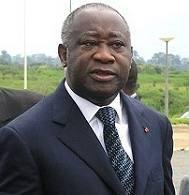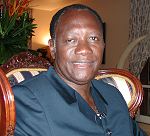
As the standoff continues in the Côte d’Ivoire, I thought it’d be good to provide a little background. After all, there’s more to the story than a sore loser–Gbagbo–not wanting to give up his job as president. To get a little deeper, we have to look at how Côte d’Ivoire became the world’s largest cocoa producer.
Ivorian planters were initially slow to embrace cocoa and coffee as export crops, but once they did, they quickly ran up against the power of French planters who severely limited access to labor and other inputs. In response, the Ivorian planters formed the Syndicat Africain Agricole (SAA) in 1944. The SAA was more than an interest group. It was the training ground for a new nationalist planter class. The SAA also formed the basis for the Parti Democratique de Côte d’Ivoire (PDCI). Its leader, Houphouet-Boigny, ruled the country from 1960 until 1993.

The planter class dominated politics and instituted a development model that focused on export led growth based on cocoa and coffee. As world market prices for these crops were steady or increased, the revenue filtered into other sectors of the economy, creating spectacular economic growth based on import-substitution and making the Côte d’Ivoire the darling of western development experts at the World Bank.
To keep pace with world demand and to expand output, the Ivorian government pursued two strategies: the opening up of new forest land for cocoa cultivation and the employment of large numbers of migrant farmers. As the cocoa boom focussed primarily on the south of the country, labor migrated first from the north of the country and later from Mali and Burkina Faso. Land tenure was easily gained following the principle “the land belongs to those who make it produce.”
The structural problems of the cocoa driven development come to light in the 1980s as new forest land was increasingly unavailable and international cocoa prices plummeted. With the state unable to pay guaranteed prices, planters faced a squeeze. The lack of new forest land made cocoa production more expensive just as prices fell. Competition for land increased dramatically.

The crisis also affected the urban bourgeoisie which suffered as export led growth collapsed and jobs, both public and private disappeared. The result was a shattering of class alliances and a reversion to ethnic alliances.
With as much as a quarter of the population immigrants, there had never been a clear definition of nationality. But that changed once competition for land emerged. As Dwane Woods (see below) points out, the Baoulé and Bété were particularly eager to limit competition from foreigners. The Baoulé because they couldn’t find cheap seasonal labor because migrants had become farmers and the Bété because they came late to the cocoa bonanza and felt they hadn’t gotten their share yet.
Laurent Gbagbo lead student protests against Houphouet-Boigny in the 1980s and fled into exile to evade the government crackdown. He returned in 1988 and competed in the 1990 election which he lost by a large margin.

Near his death Houphouet-Boigny, rejected Allasane Ouattara, the Prime Minister, as successor, choosing the leader of the National Assembly Henri Bedié instead. Once in power, Bedié conjured up the concept of “Ivorité” and quickly proceeded to limit the rights of foreigners, including their right to own property. Allasane Ouattara broke away from the PDCI and formed his own party. In response, he was prohibited from participating presidential elections on the dubious claim that his parents were not Ivorian.
Fast forward to 2010 election (with apologies for skipping the 1999 coup and the 2003 civil war). Who should be the candidates but the same threesome: Bedié, Gbagbo and Ouattara. A former PDCI functionary, a history teacher and a former IMF functionary, each representing fractured class interests which suffer from the delusion that ethnicity is a spigot that can be turned on and off whenever necessary to protect its interest.
For extensive background material on the Côte d’Ivoire, see
- Dwayne Woods. The Tragedy of the Cocoa Pod: Rent-Seeking, Land and Ethnic Conflict in Ivory Coast. The Journal of Modern African Studies, Vol. 41, No. 4 (Dec., 2003), pp. 641-655.
- Richard C. Crook. Politics, the Cocoa Crisis, and Administration in Cote d’Ivoire. The Journal of Modern African Studies, Vol. 28, No. 4. (Dec., 1990), pp. 649-669.
